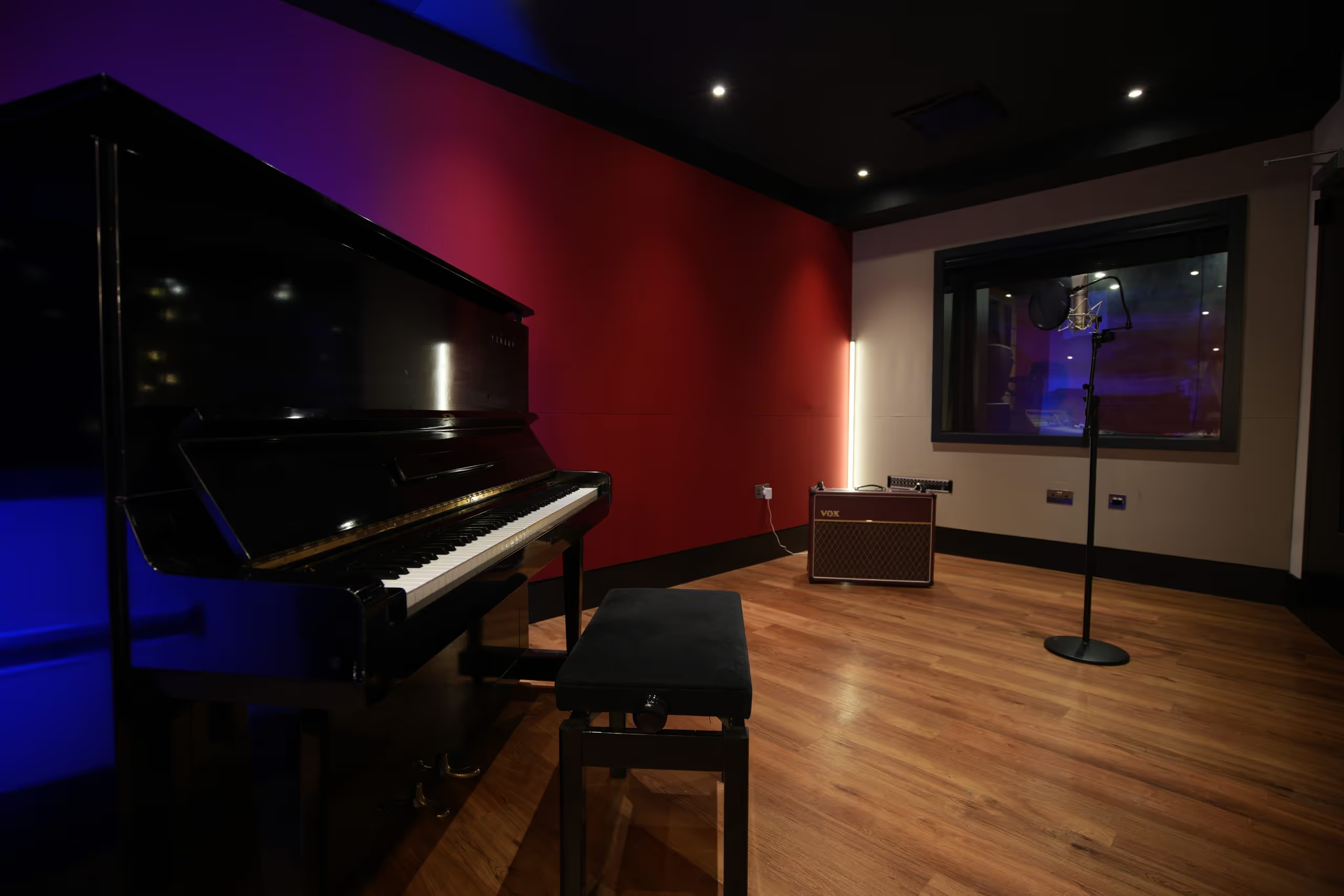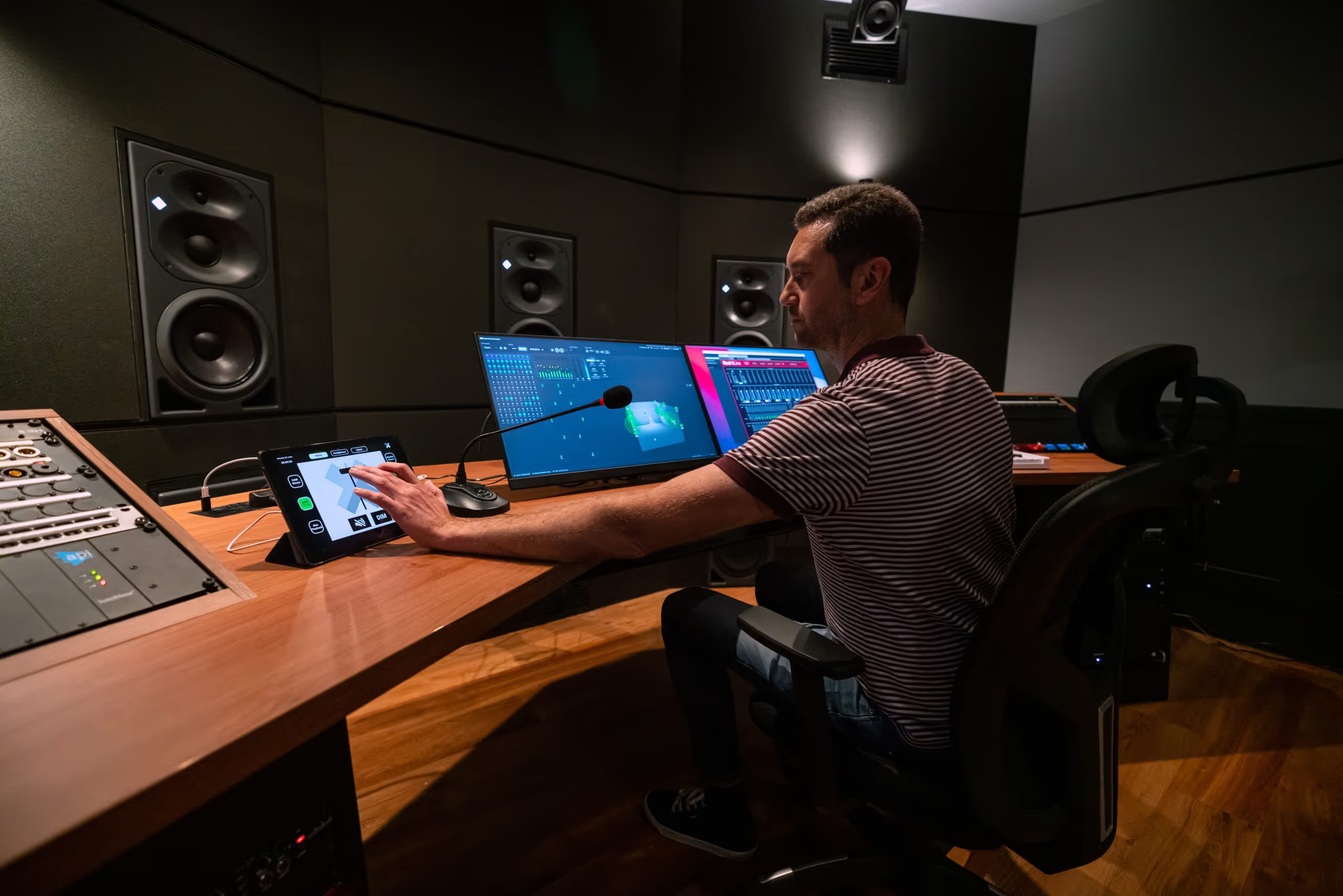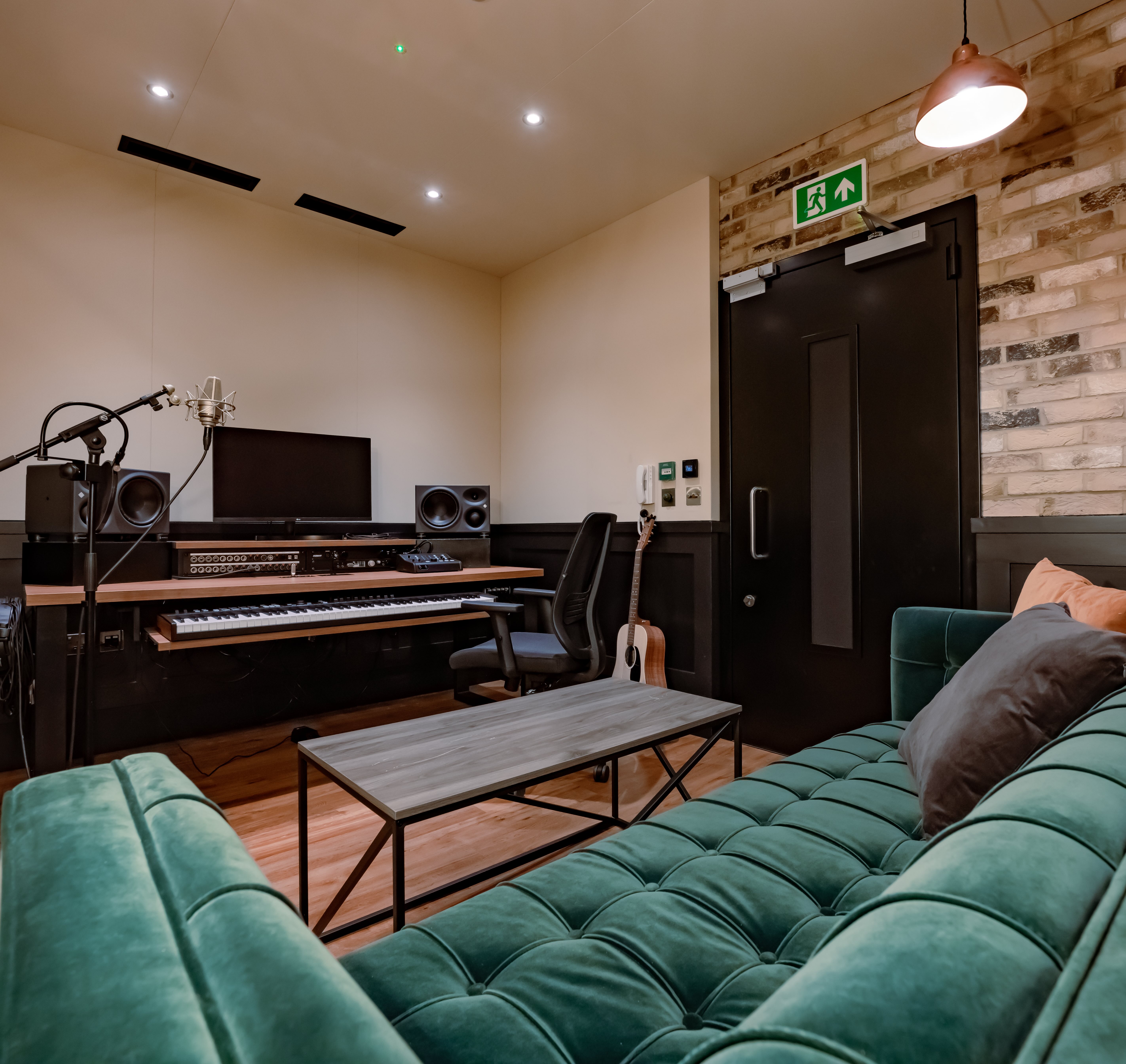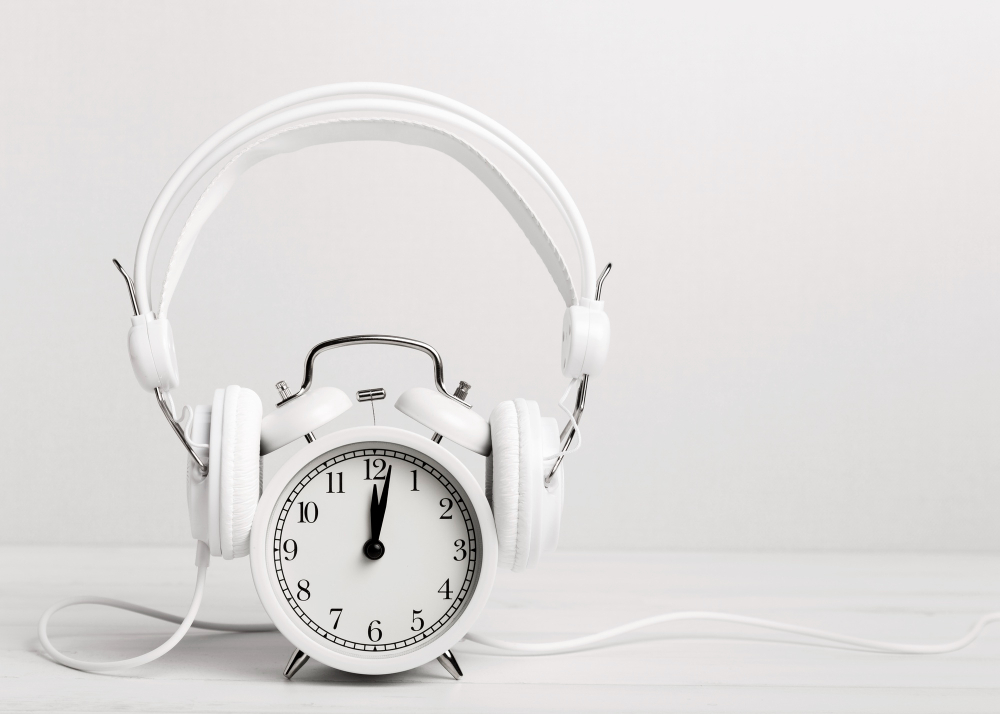How Long Does it Take to Make an Album?
Whether you’re working on your first album or your next major album release, this step-by-step guide will help you set realistic goals and timelines for your music project.
Short answer. Most projects take 6 to 12 months from idea to release, whereas some wrap faster (sometimes a lot faster). Complex studio album cycles run longer. Ultimately, the the timeit takes to make an album depends on preparation, team, scope, and formats.
At our London recording studios, TYX has helped artists record albums end to end, from pre production and tracking to artwork shoots and mastering.
In this guide, we’ll walk through each stage of making a studio album and show you what to expect if you want your project finished on time.
What counts as an album in the UK?
If you care about charts, the Official Charts Company treats an album as over 25 minutes or more than four songs at album price. That settles how many songs you need for a full length album when you plan formats and pricing.
So, how long does it take to make?
- Writing and arranging: 4 to 16 weeks.
- Pre production: 2 to 8 weeks.
- Studio time for a standard studio album: 5 to 20 days split across weeks.
- Editing and comping: 3 to 10 days.
- Mixing stage: 1 to 3 days per track including notes.
- Mastering: 2 to 5 working days for an entire album.
- Artwork and metadata: 1 to 2 weeks.
- Distribution and releasing music: deliver at least 2 weeks ahead, pitch Spotify at least 7 days before release.
- Physicals: vinyl records often add about 8 weeks; compact discs are usually quicker at 2 to 4 weeks.
What people are saying about how long albums take
Musicians on Reddit and Quora agree: there’s no one-size-fits-all timeline. Several factors shift the finish line.
- Writing can take months to years, depending on whether the artist handles lyrics, composition, arrangement, etc.
- Once writing is done: tracking/recording might be a few weeks; mixing and mastering together often stretch a few more.
- Freelancers or self-producing artists often finish quicker if focused full time; those balancing other jobs or creative breaks take longer. Delays from inspiration, feedback, and rework are common.
- Cohesion matters. Some take time aligning sound, tone, and theme across tracks so the album “feels” like one piece—not just a collection of songs.
What really drives the time frame
Multiple stages stack. The creative process, team size, budget, studio time, and the admin load all push the clock. Ask these early:
- How many songs and which versions make your track listing.
- Live band tracking or multi tracking with overdubs.
- One artist or a group of other musicians.
- Singles strategy vs a steady stream of one off singles.
- Format plan across digital, vinyl records, and compact discs.
- Do you want a live albums capture or a straight studio album.
Clarity now saves days later.
Budget, scheduling, and where time turns into money
Time is money, and even more so when you're paying for studio time. The recording process speeds up when decisions are made early and the room fits the act. A well-planned day in a recording studio can replace a few days of unfocused overdubs at home.

Using a professional studio protects sound quality and keeps sessions moving. Remember to bring a clear take list, agree the order of songs, and Label stems and individual tracks before you arrive. Many projects stall because recording equipment gets re-patched mid-session without notes.
Most music album budgets get burned in indecision. Many artists aim to “save” in pre production then pay for it later in extra edits, reshoots, and recalls. Plan the day, rehearse, and stick to the clock. Capture the parts that only a treated room can deliver. Finish sweetener overdubs at home if needed.
Technology and workflow that compress the calendar

Modern workflows changed how you record an album. Multi tracking lets you build a master take from the best moments while keeping feel. Shared drives, named bounces, and one master folder make creating and approving recorded music quicker when teams are split.
Keep plug-in versions aligned, lock sample rates, and version every print (these small rules can prevent big delays).
Today, metadata drives the music industry. Bad credits and missing codes burn weeks so ensure to embed identifiers at the final bounce, keep one asset directory, and one person responsible for sign-off.
Register works early so royalties flow from day one, and plan delivery formats before mix approvals so releasing music does not stall at ingestion.
Project types and how they change the plan
Studio album. The baseline for most artists. You write, rehearse, and record an album in a recording studio with isolation, vocal tracks, and precise monitoring. Plan for multiple takes where needed. Bring a mixing engineer in early so rough balances serve the artist’s vision and the overall sound.
Live albums. Faster to track, slower to edit. You still budget for post production and mastering engineer time to manage ambience and dynamics.
Double album. Twice the audio, twice the admin. Expect longer mixing and QC, more assets, and a bigger vinyl run if you press two albums in a gatefold.
First studio album. Build extra slack. Decision speed is slower when you find your sound.
Solo albums. One artist can move fast if arrangements are locked. Where you play many instruments, studio time grows unless you sequence parts tightly.
Rock band session. A rock band with a tight rhythm section can record an album fast if rehearsed. Track live basics, then focus on vocal tracks and leads.
Special formats. Long play editions, alternate takes, or a deluxe track listing add assets and time.
Team vs DIY: who you need and when
A small, sharp team beats a large, confused one. A producer shapes the creative process and protects the artist’s vision. A tracking engineer gets signals clean. A mixing engineer balances and commits. Bring other musicians only when the parts are ready. If you work alone, keep creative control but add check-ins for objectivity.
Labels bring budget and reach. They also bring process. Record labels may require approved mixes, assets, licenses, and a fixed rollout window. That can add a few weeks after you think the finished album is done. If you stay independent, you still need the same sign-offs.
A realistic 6–12 month timeline

1) Pre production: 2–8 weeks
Define the concept and scope. Lock keys, tempos, and sections. Decide who plays. Book the rooms. Pre production is where many artists burn or save the most time. Build a shared folder, name sessions cleanly, and decide on file formats. Keep a single source of truth for stems and individual tracks. Use simple checklists for takes, edits, and comps. Hit this level and you will record an album faster.
Deliverables: session plan, click maps, lyric sheets, patch notes, guide demos.
2) Songwriting process and arranging: 4–16+ weeks
Write to a clear brief. Capture sketches, then refine. For a first album, this takes longer. Keep the recording process in mind while you write. Leave headroom for performance. Decide early which songs belong together so all the songs feel like a whole album, not a playlist.
3) Rehearsals: 1–3 weeks
Tighten transitions. Confirm tempos. Test click vs no-click for feel. Decide where multiple takes are essential and where you will commit.
4) Tracking the studio album: 5–20+ days
This is the recording process most people imagine. Factors include number of tracks, recording equipment, player count, arrangement density, and whether you track live or overdub. In a professional studio you capture drums, bass, guitars, keys, and vocal tracks through clean signal chains. Quality rooms reduce fixes and improve sound quality.
A simple acoustic set can be album recorded in a weekend. Dense productions take longer. Protect voices and drums with fresh ears and smart scheduling. Book consecutive studio time for momentum.
5) Editing and comping: 3–10 days
Comp vocals, solos, and take folders. Clean noise. Tighten timing only where it helps the groove. Mark prints. Keep naming and versioning strict to avoid mix errors.
6) Mixing stage: 1–3 days per song
A straightforward song can mix in hours. Complex sessions need days. Keep one decision maker. Request instrumental, a cappella, and TV mixes at sign-off.
7) Mastering: 2–5 working days
A mastering engineer calibrates loudness across the entire album, checks translation, and delivers the assets your distributor wants. Keep one revision cycle in the plan.
8) Artwork, credits, and metadata: 1–2 weeks
Apple recommends square artwork at least 4000×4000 px in RGB JPG or PNG. Keep text minimal and legible at thumbnail size. Gather credits, ISRCs, and a UPC. In the UK you can request ISRCs via PPL or apply for a registrant prefix via IFPI.
9) Distribution and releasing music: 1–2+ weeks before day one
- Deliver your finished album to a distributor at least 2 weeks before the release date to reduce risk.
- Pitch your focus track in Spotify for Artists at least 7 days ahead to reach Release Radar. Two weeks is safer.
10) Physical formats: add time
- Vinyl records. A UK benchmark is 8 weeks including test pressings once audio, artwork, payment, and approvals are in. Plan longer for colours and special finishes. One example is Press On Vinyl’s 8-week lead time.
- Compact discs. Typical UK replication windows run 2–4 weeks after approved assets. Useful if you want stock sooner than vinyl.
Case studies that show how long albums take
_album_cover.jpg)
- Black Sabbath recorded their first studio album largely in one day in October 1969. Proof that a live band, ready set list, and simple production can move fast.
- Miles Davis cut Kind of Blue across two sessions at Columbia’s 30th Street Studio, showing how a studio album can be focused and still stretch across dates. That’s Columbia Records grade logistics and musicians at peak.
- Frank Sinatra built classic solo albums through multiple sessions, arranging for small ensembles first. Efficient, but still spread across dates to serve the songs.
These examples span three decades of popular music. Different methods. Same lesson. Preparation and decisions save time. recorded music
Roles and who does what
- Producer. Owns the creative process, schedule, and budget.
- Recording engineer. Runs capture. Maintains signal path and recording equipment.
- Mixing engineer. Balances individual tracks into a record.
- Mastering engineer. Finalises delivery, loudness, and sequencing.
Keep approvals tight. One artist acts as final sign-off even in a band. Too many voices slow the production.
How release strategy affects studio time
If you plan a steady stream of singles, you might record an album in clusters. That keeps a new album announcement clean while you build momentum. One off singles can also sit outside the campaign. Record labels will want realistic dates and assets early. If you self-release, commit to dates your team can hit.
Artwork and content

You will need cover art to spec and clean credits. In today's digital world, uou'll also need content. BTS clips, short performance reels, and stills for social. Music videos help, but smart performance assets also work. Shoot while you track.
Keep creative control by bringing a shot list for your content day.
That’s a wrap
Albums hit deadlines when the groundwork is solid and the team stays focused. Set scope early in pre production, rehearse until transitions are tight, and book the right rooms. When you track with intent and keep sessions organised, the recording process runs smoother and every stage after benefits.
Mixing and mastering move quickly when files are clean and approvals are decisive. Give artwork, credits, and metadata the same discipline, lock them early, and you avoid last-minute scrambles that push the date. Keep promo simple and workable so momentum holds.
Timelines vary, but the principles don’t. Protect the vocalist, keep clear notes, and give one person final say. Treat quality control as a stage, not an afterthought, and a studio album moves from idea to finished album without unnecessary delays.
Record and produce your album at TYX

At TYX Recording Studios in London, we understand that the right release day is just as important as creating a great track.
As an end-end studio complex, we support artists through every stage of their workflow, from recording audio in our Red Studio to mixing down in our production rooms, to world-class mastering from top engineers.
Get in touch today to book a session and make your next release unforgettable.
Frequently Asked Questions
6–12 months is a fair average for a music album. Some projects are shorter, some much longer, but that range reflects common industry advice.
A focused band can record an album in a week of concentrated studio time. Dense productions need more. A few days per cluster is a common pattern. Most projects fall somewhere in the middle, showing how recorded music can range from fast live sessions to extended multi-layered tracking.
Yes. Assign one ISRC per track and a UPC for the release. UK rightsholders can get ISRCs via PPL or apply for an IFPI registrant code.
The challenge varies. Writing and arranging songs is time-intensive, and recording takes skill and resources. For many artists the hardest part is consistency and finishing, not starting.
In the US recording industry, contracts often tie artists to delivering up to five albums. The “5 album rule” is shorthand for the expectation that major labels may sign artists for as many as five releases. It’s not a creative rule, just a business term.
Yes, if songs are written in advance and the recording is efficient. Many punk and indie records have been tracked and mixed in under three months. Larger productions with orchestration, guests, or complex mixing usually take longer.
The Beatles’ timelines ranged from one day (Please Please Me, 1963) to several months (Sgt. Pepper’s Lonely Hearts Club Band, 1967). Their later albums used more studio experimentation, so sessions stretched much longer.
TYX Studios provides world-class facilities and soundproof live rooms, ideal for tracking bands or using premium outboard gear. Their spaces are professionally tuned for perfect frequency response.

















.avif)
